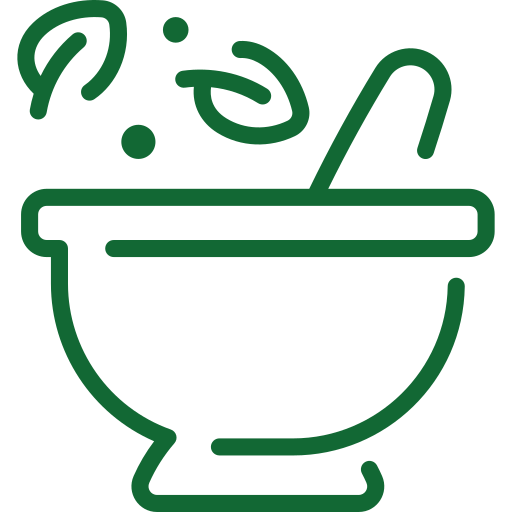High uric acid
High uric acid - a modern and Ayurvedic view of treatment
High uric acid is a medical condition that can have serious consequences for an individual's health. Higher levels of uric acid in the body can cause recurring bouts of joint pain, swelling, burning pain when urinating and other symptoms that affect the patient's daily life.
Causes of origin
According to modern medical studies, the causes of high uric acid can be genetic factors, excessive consumption of foods rich in purines (such as red meat, seafood), excessive alcohol consumption, obesity, high cholesterol and diabetes.
According to Ayurveda, an increased level of uric acid in the body is associated with an imbalance in the tridosha system, which consists of Vata, Pitta and Kapha. Each dosha has its own characteristics, and when these doshas are out of balance, it can lead to various health problems, including high uric acid.
-
Pitta dosha and metabolism: Pitta dosha is associated with fire and water. When Pitta is out of balance, it can lead to excess acid production in the body. Excess Pitta can be caused by excessive stress, excessive intake of acidic foods or excessive physical activity, which can lead to increased uric acid production.
-
Vata dosha and digestion: Vata dosha is associated with movement and air. When Vata is out of balance, it can affect the digestive system and slow down the digestion of food. Inadequate digestion can lead to the formation of toxins in the body, which can affect uric acid levels.
-
Kapha dosha and fat metabolism: Kapha dosha is associated with water and earth. When Kapha is out of balance, it can affect the body's fat metabolism. An excess of Kapha can cause the accumulation of fat in the body and increase the level of uric acid.
In addition to an imbalance in the tridosha system, the causes of increased uric acid according to Ayurveda can also be excessive consumption of foods with a high purine content (such as red meat, seafood, alcohol), lack of hydration, insufficient physical activity and excessive stress.
According to Ayurveda, it is important to maintain balance in the tridosha system through a balanced diet, regular exercise, meditation, and other stress-relieving techniques. Including herbs and foods with cleansing and detoxifying properties in your diet can also help maintain optimal uric acid levels in the body and relieve symptoms associated with high uric acid levels. However, it is important to consult a qualified Ayurvedic practitioner before starting any treatment regimen.
Recommended herbs
-
Giloy (Tinospora cordifolia): also known as Guduchi, is considered in Ayurveda as "the agent of inevitable failure". Giloy helps detoxify the body and strengthens the immune system, thereby reducing the level of uric acid.
-
Triphala: is a combination of three fruit herbs - Amalaki, Bibhitaki and Haritaki. These herbs have strong detoxifying properties and help cleanse the kidneys, which is important for controlling uric acid levels.
-
Gugullipid: is known for its lipid-regulating properties and supports healthy fat metabolism in the body, thereby contributing to maintaining optimal uric acid levels.
-
Varuna (Crataeva nurvala): is traditionally used in Ayurvedic medicine to support kidney and urinary tract health. It helps in removing excess uric acid from the body.
-
Manjistha (Rubia cordifolia): is known for its detoxifying properties and helps purify the blood and kidneys, which can help treat high uric acid
-
Neem (Azadirachta indica): has anti-inflammatory and antimicrobial properties and helps detoxify the body, which is important for controlling uric acid levels
A suitable combination designed by Dr. By Vikram Chauhan:
DNA - high uric acid I - basic version (Giloy 1 capsule 1 x a day, Varuna 1 capsule 1 x a day, Curcumin 1 capsule 1 x a day)
DNA - high uric acid II - extended version ( Giloy 2 capsules 2 x a day, Triphala 2 capsules 2 x a day, Gugul 2 capsules 1 x a day, Varun 2 capsules 2 a day, Manjistha 1 capsule 1 a day, Neem 1 capsule 1 x a day)
In addition to these herbs, it is also important to include in your diet foods that help control uric acid levels, such as fresh fruits and vegetables, whole grains, dairy inproducts with low fat content and plenty of water. Ayurveda also emphasizes the importance of regular exercise, avoiding excessive stress and maintaining regular sleep to maintain the balance of body and spirit.
The listed herbs and dietary and lifestyle recommendations can provide effective support in treating high uric acid and protecting kidney and urinary tract health. However, it is important to consult a qualified physician before starting any treatment regimen, especially if you have medical conditions or are taking other medications.















